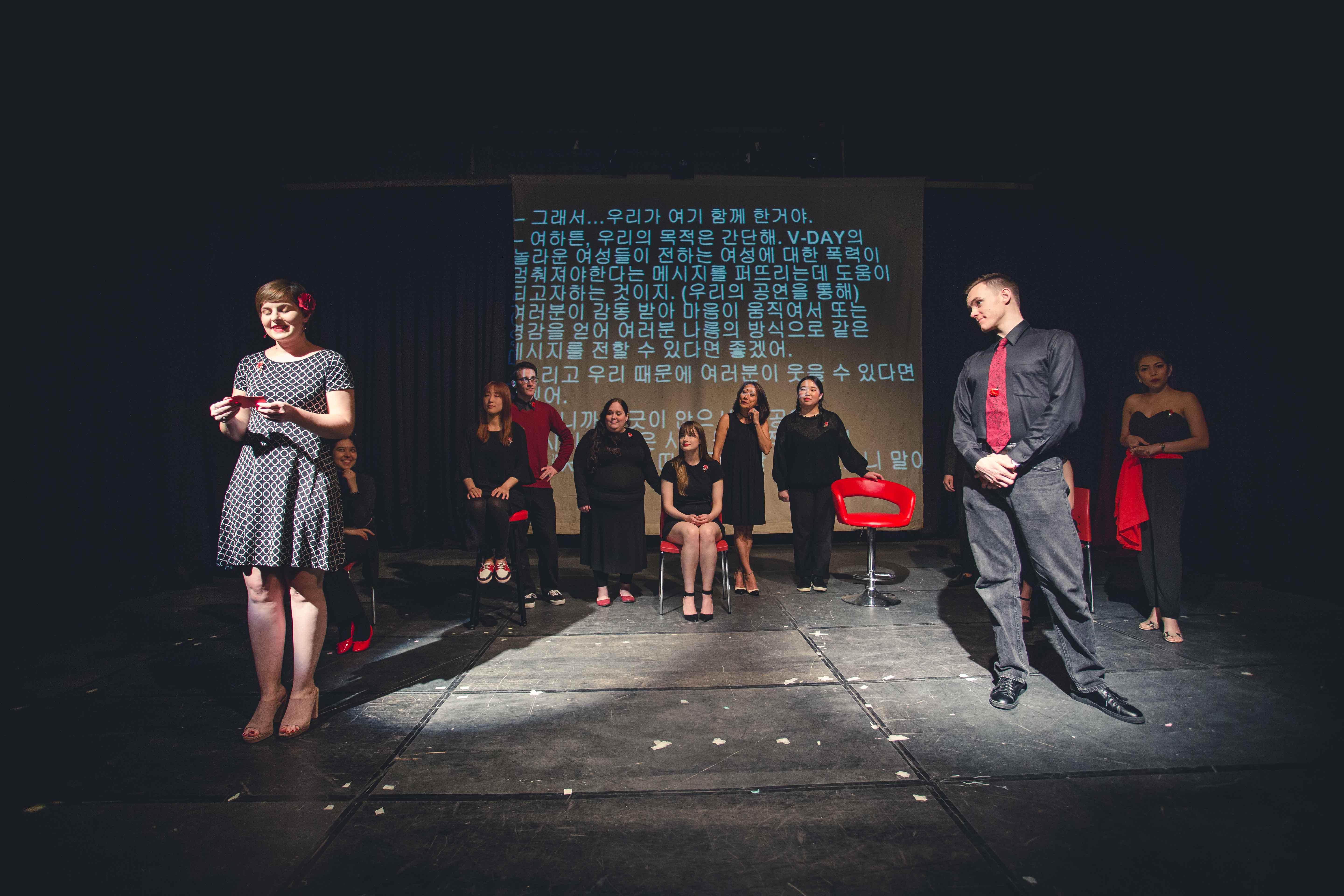V-Day Gwangju 2018: Gender Equality That Stands on Both Legs
Written by Lee Suk Pei
Photographed by Ben Robins and Sarah Pittman
After quite actively attending performances back in Kuala Lumpur, that passion died down a little after I came to Gwangju. Blame the weather, blame the tight study schedule, blame the price of the ticket, blame the language, etc. – the list goes on but never includes my laziness. One day, a colleague asked whether anyone was interested in watching V-Day Gwangju 2018, and I quickly said “yes” as I had been contemplating watching it for quite some time. As a result, V-Day Gwangju 2018 is the very first theatre performance I have seen in Gwangju!
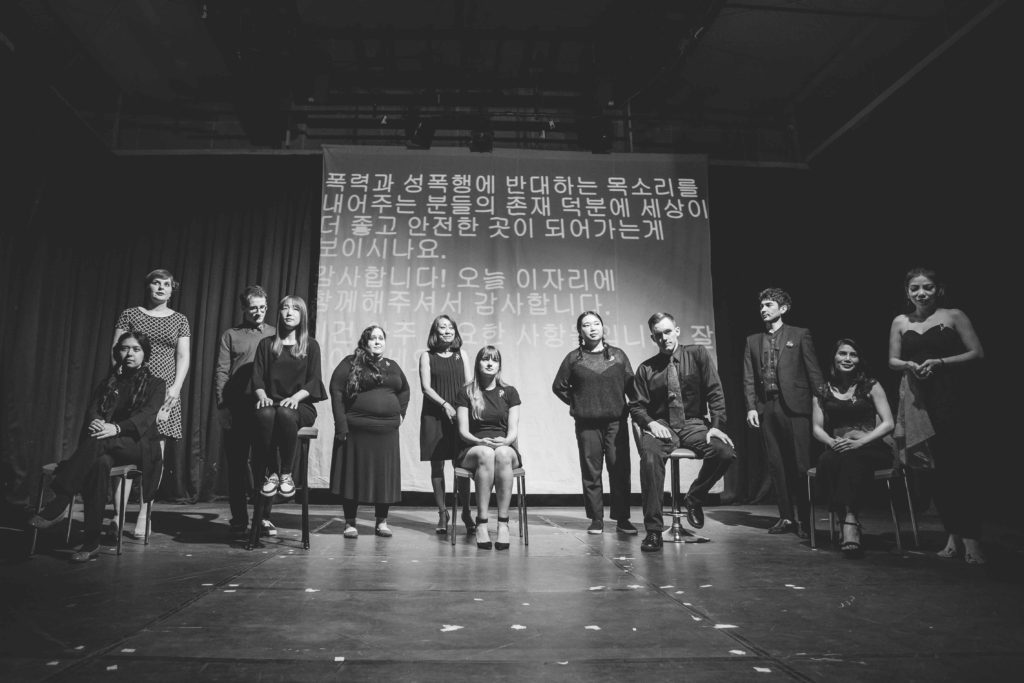
Without doing any research before going to the performance, I tried to guess the content of the play as suggested by the title. As a combination of The Vagina Monologues (by Eve Ensler) and The Mending Monologues (by Derek Dujardin), the idea of men and women talking about their sexual experiences came naturally into my head. Once I was seated, the director, Ms. Dana Han, kicked it off by introducing the performance. The simplicity of the theater setting and facilities did not stop the talented actors and actresses from delivering their performance and its key message stated on a pamphlet: “to raise awareness about gender violence and to end sexual violence against women.” The performance explored a wide spectrum of topics related to sexuality, including sexual violence, sexual orientation, and anxiety from sexual organ aesthetics. This season should be applauded for combining both The Vagina Monologues and The MENding Monologues that share views from both women and men. This move made the performance no longer look like monologues but parallel dialogues.
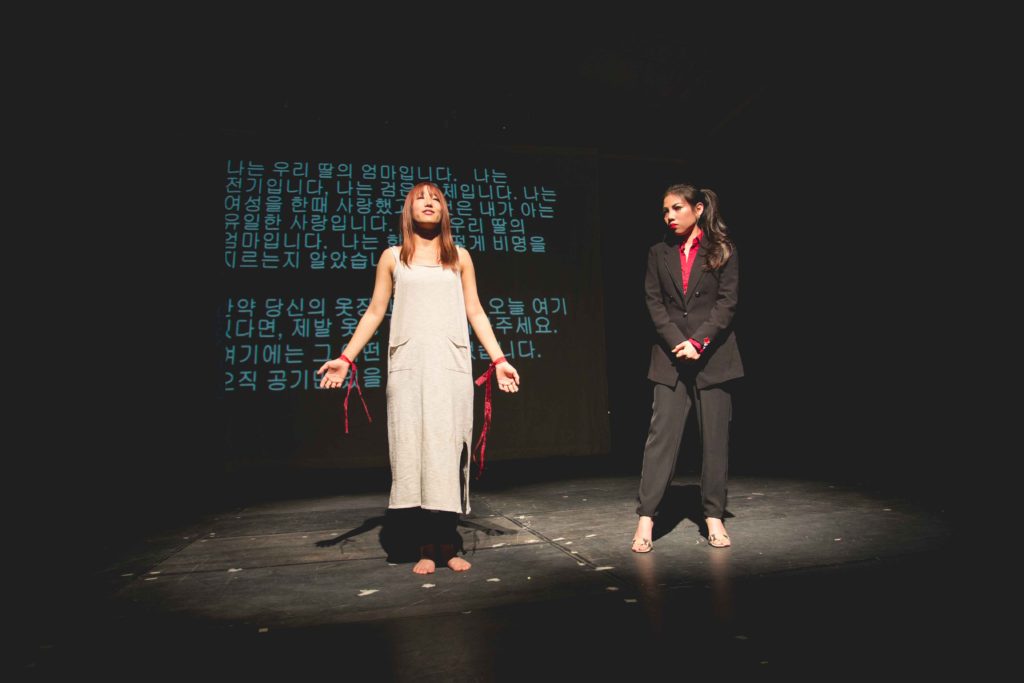
Out of the sixteen “monologues,” I could not help but pick Dr. Vaginski, Because He Liked to Look at It, and While I Was There in the Room as my top three favorites. Dr. Vaginski portrayed the constant worry women have about their body image, which goes even as far as worrying about how their vaginas look! While their lovers did not seem to care about how they looked, it was the women who cared to make them look perfect. This piece is useful in reminding women to love themselves the way they are instead of subjecting themselves to the constant worry of rejection by their lovers. Because He Liked to Look at It is also a piece that shares a similar theme with Dr. Vaginski. Instead of being ashamed of our private parts and hating them, the lover’s love of the woman’s private parts helped her to be comfortable and love her vagina again. While I Was There in the Room is a piece about a personal experience involving the realization of the big role that vaginas play after witnessing the birth-giving process of a friend. From that experience, one realizes how a vagina gives life to a baby, and what the pains are that a vagina has to go through in order to achieve that. The piece struck me very hard, as we never cherish the importance of our vaginas but instead decide to hide them away, denounce their existence, be embarrassed about them, and even neglect them.
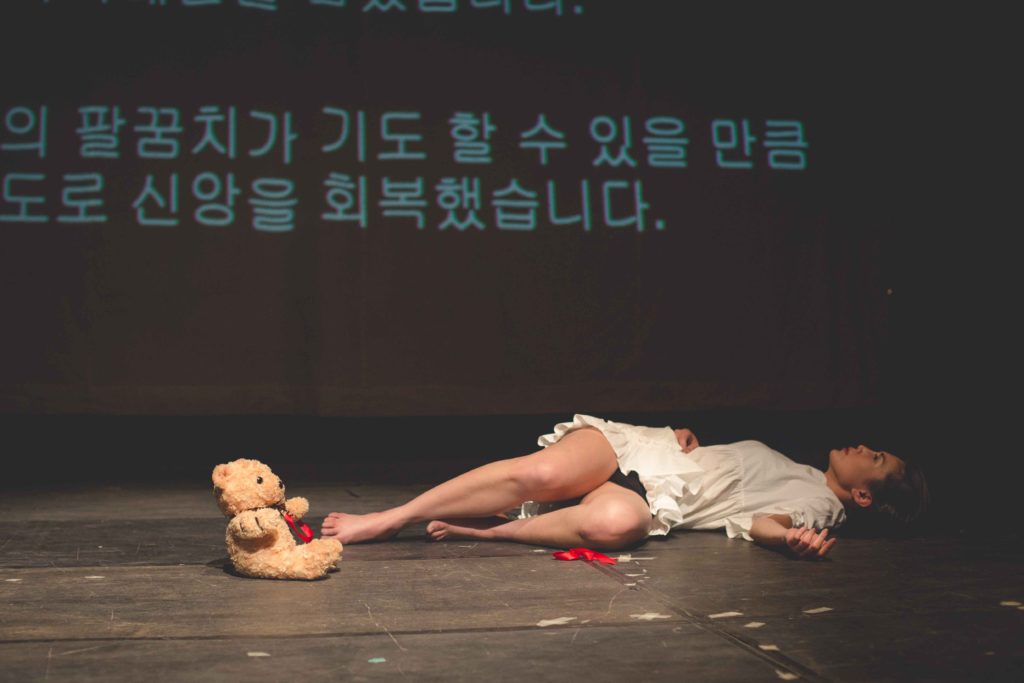
I managed to catch the director, Ms. Dana Han, to talk about the performance. This was her fourth time participating in V-Day performances, and she has been involved in directing three of them. In its seventh season since it began in Gwangju in 2012, it took the whole production team two months to produce the performance this time. Speaking of the main message of this season, she replied that combining both The Vagina Monologues and The Mending Monologues was intended to “combine both voices together against violence towards women and girls, as well as men and boys. This is basically an invitation to men to choose to be part of the solution instead of the problem. I wanted to show that men are also suffering from violence, directly as victims or indirectly through the experiences of women they love. I believe that changes will happen only when men and women unite their efforts together.”
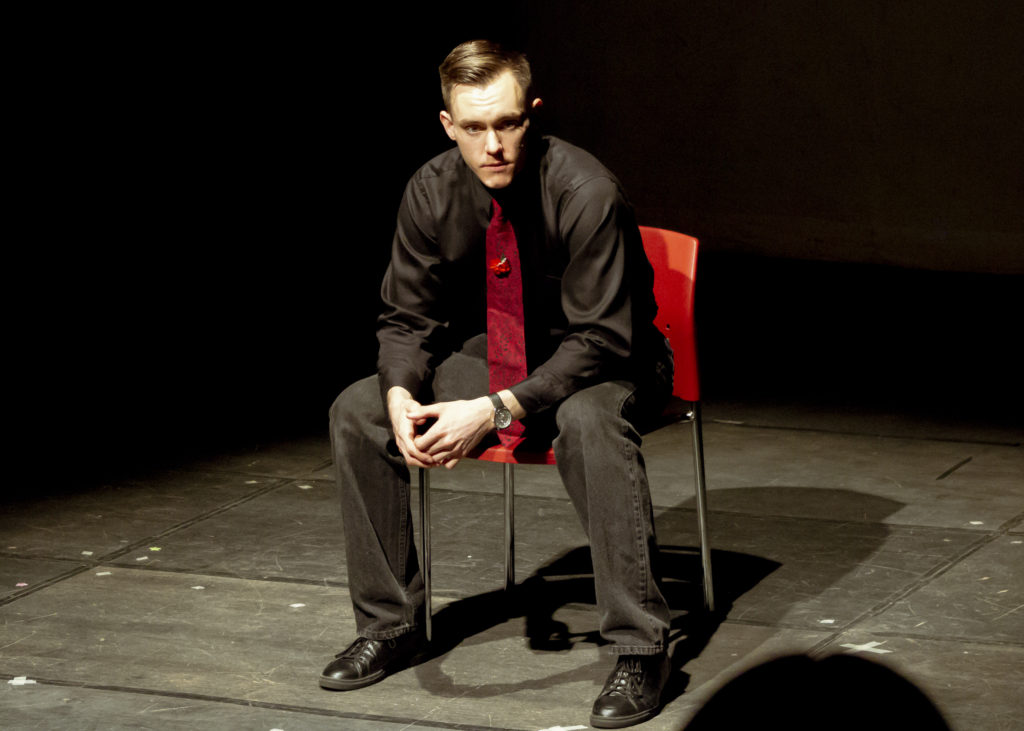
On a related note, speaking about the biggest challenge of the production being to find male actors and the hope for future seasons of V-Day performances, she added, “I reached out to a lot of men and mostly got a lot of verbal support. They wished me luck and many of them came to the show, which I am very grateful for. However, I really hope that next time there will be more actively involved men, not only supporters.” I could not agree more with her that men’s participation is very much needed in the movement to end sexual violence and to acknowledge that men are also suffering from it and are always required to put up the strong image of “manhood.”
Empowering women helps to relieve this pressure from men and hence may be able to reduce the occurrence of sexual violence due to stress put on them. The combined theme does not try to imply that society is unable to stand with only one leg, but that a harmonious society is able to maintain its balance better with the support of both legs, which includes men and women together. I did not expect a performance to trigger so many thoughts in me the way Dana mentioned in the introduction when she said that she hoped the performance would be able to generate questions and dialogues among the audience, and that those questions and dialogues would be brought out of the theatre and expanded.
THE AUTHOR
Suk Pei is from Kota Kinabalu, Malaysia, and is currently doing her master’s in NGO studies at Chonnam National University. She likes traveling, photography, running, and exploring her surroundings on foot.




